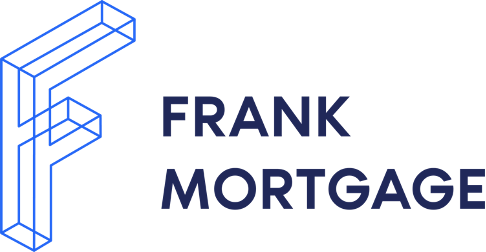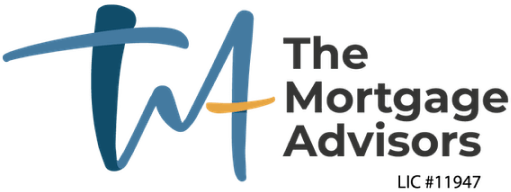The Best Mortgage Rates in Nova Scotia
Compare mortgage rates from Nova Scotia's top banks, credit unions and brokers.
Today's Best Mortgage Rates in Nova Scotia
Evaluate Nova Scotia’s best mortgage rates in one place. You can compare the most current mortgage rates and monthly payments from 175+ banks and lenders across Nova Scotia.
Rates are based on an average mortgage of $500,000 and subject to change based on filter criteria.
| Lender
|
Insured
|
Insurable
|
Uninsured
|
|---|---|---|---|
|
Mortio Financial Corp
|
3.99%
$2,627.39 / month
|
4.24%
$2,695.56 / month
|
4.14%
$2,668.19 / month
|
|
Frank Mortgage
|
4.09%
$2,654.55 / month
|
4.19%
$2,681.85 / month
|
4.09%
$2,654.55 / month
|
|
Northwood Mortgage Ltd.
|
4.14%
$2,668.19 / month
|
4.24%
$2,695.56 / month
|
4.24%
$2,695.56 / month
|
|
Mortgage Outlet - Russel Inspektor
|
4.29%
$2,709.29 / month
|
4.29%
$2,709.29 / month
|
4.29%
$2,709.29 / month
|
|
Innovation Federal Credit Union
|
4.39%
$2,736.87 / month
|
4.39%
$2,736.87 / month
|
4.39%
$2,736.87 / month
|
|
True North Mortgage
|
2.99%
$2,363.66 / month
|
2.99%
$2,363.66 / month
|
2.99%
$2,363.66 / month
|
|
The Mortgage Advisors
|
3.87%
$2,594.98 / month
|
3.87%
$2,594.98 / month
|
3.87%
$2,594.98 / month
|
|
Nesto
|
3.91%
$2,605.76 / month
|
3.91%
$2,605.76 / month
|
3.91%
$2,605.76 / month
|
|
MortgagestoGo
|
3.94%
$2,613.86 / month
|
3.94%
$2,613.86 / month
|
3.94%
$2,613.86 / month
|
|
Hypotheca
|
3.94%
$2,613.86 / month
|
3.94%
$2,613.86 / month
|
3.94%
$2,613.86 / month
|
|
One Link Mortgage & Financial
|
3.95%
$2,616.57 / month
|
3.95%
$2,616.57 / month
|
3.95%
$2,616.57 / month
|
|
Northern Birch Credit Union
|
3.99%
$2,627.39 / month
|
3.99%
$2,627.39 / month
|
3.99%
$2,627.39 / month
|
|
The Police Credit Union
|
3.99%
$2,627.39 / month
|
3.99%
$2,627.39 / month
|
3.99%
$2,627.39 / month
|
|
Monster Mortgage
|
3.99%
$2,627.39 / month
|
3.99%
$2,627.39 / month
|
3.99%
$2,627.39 / month
|
|
City Wide Financial Corp
|
3.99%
$2,627.39 / month
|
3.99%
$2,627.39 / month
|
3.99%
$2,627.39 / month
|
|
Sudbury Credit Union
|
3.99%
$2,627.39 / month
|
3.99%
$2,627.39 / month
|
3.99%
$2,627.39 / month
|
|
Mainstreet Credit Union
|
3.99%
$2,627.39 / month
|
3.99%
$2,627.39 / month
|
3.99%
$2,627.39 / month
|
|
East Coast Mortgage Brokers
|
4%
$2,630.10 / month
|
4%
$2,630.10 / month
|
4%
$2,630.10 / month
|
|
Prospera Credit Union
|
4.04%
$2,640.95 / month
|
4.04%
$2,640.95 / month
|
4.04%
$2,640.95 / month
|
Today's Best Mortgage Rates in Nova Scotia
Evaluate all of Nova Scotia's best mortgage rates in one place. Rates.cas Rate Matrix lets you compare pricing for all key mortgage types and terms.
Rates are based on an average mortgage of $500,000 and subject to change based on filter criteria.
Updated 18:18 on Jul 25, 2025| Placeholder |
Insured
The rates in this column apply to borrowers who have purchased mortgage default insurance.
This is required when you purchase a home with less than a 20% down payment.
The home must be owner-occupied and the amortization must be 25 years or less.
|
80% LTV
The rates in this column apply to mortgage amounts between 65.01% and 80% of the property value. The home must be owner-occupied and have an amortization of 25 years or less. You must have purchased it for less than $1 million. These rates are not available on refinances. Refinances require "Uninsured" rates.
|
65% LTV
The rates in this column apply to mortgage amounts that are 65% of the property value or less. The home must be owner-occupied and have an amortization of 25 years or less. You must have purchased it for less than $1 million. These rates are not available on refinances. Refinances require "Uninsured" rates.
|
Uninsured
The rates in this column apply to purchases over $1 million, refinances and amortizations over 25 years. More info on the differences between insured and uninsured rates.
|
Bank Rate
Bank Rate is the mortgage interest rate posted by the big banks in Canada.
|
|---|---|---|---|---|---|
| 1-year fixed rate | 4.84% | 5.29% | 5.29% | 5.59% |
5.49%
|
| 2-years fixed rate | 4.49% | 4.69% | 4.39% | 4.39% |
4.79%
|
| 3-years fixed rate | 4.09% | 4.09% | 4.09% | 4.24% |
4.29%
|
| 4-years fixed rate | 4.24% | 4.34% | 4.34% | 4.44% |
4.39%
|
| 5-years fixed rate | 3.91% | 3.91% | 4.04% | 3.91% |
4.09%
|
| 7-years fixed rate | 5.19% | 5.00% | 5.00% | 5.19% |
5.00%
|
| 10-years fixed rate | 5.29% | 5.29% | 5.29% | 5.29% |
6.09%
|
| 3-years variable rate | 4.40% | 4.30% | 4.30% | 4.40% |
6.35%
|
| 5-years variable rate | 4.05% | 4.05% | 4.20% | 4.05% |
4.25%
|
| HELOC rate | N/A | N/A | N/A | N/A |
N/A
|
| Stress Test | 5.25% | 5.25% | 5.25% | 5.25% |
N/A
|
Today's Headline
Ask the Mortgage Expert: Why this could be your window of opportunity into Canadian real estate
Predicting when the absolute bottom will come is like catching a falling knife. But according to mortgage broker and resident expert Steve Garganis, what we have now is a market that is taking a breath, where genuine buyers have a real advantage.
Read moreJul.16.2025
Nova Scotia mortgage rate market
Nova Scotia is one of three maritime provinces in Canada and one of four Atlantic provinces. With about one million people, according to the 2021 Census, it is the most populous of Canada's Atlantic provinces.
The mortgage rates in Nova Scotia can be anywhere from 0.05 to 0.25%-points higher on average compared to the rest of Ontario. Less competition and deals are available, giving lenders fewer opportunities to provide the best or cheaper Nova Scotia mortgage rates compared to more populous provinces.
About 72 mortgage lenders in Nova Scotia are licensed as of May 2021. That compares to Ontario's 113. All the major banks operate in Nova Scotia, as do a host of local credit unions, private lenders and insurance companies.
Average mortgage payments in Nova Scotia have increased by 11.8% from Q1 2022 to Q2. The remaining quarters of the year are expected to see even further increases. Much of this has to do with inflation and the Bank of Canada’s interest-raising measures to keep it in check. The economy is also expected to hit a recession in 2023, which could affect mortgage payments.
Nova Scotia mortgage regulation
The Nova Scotia Real Estate Commission is the province's regulatory body for real estate. The Commission administers and enforces the Real Estate Trading Act, its Regulations and the Commission By-law.
The Mortgage Brokers’ & Lenders’ Regulation Act was replaced in Nova Scotia by the Mortgage Regulation Act (MRA) as of November 2021. It creates a regulatory regime to govern mortgage brokerages, mortgage brokers, associate mortgage brokers, mortgage lenders and mortgage administrators.
The legislative and regulatory changes associated with the implementation of the MRA and the MRA Regulations are intended to help protect borrowers, prospective borrowers and private investors, as mortgage professionals will now be required to meet certain licensing, reporting, education and record-keeping requirements in order to operate in Nova Scotia.
Homebuyers in Nova Scotia are also protected by the Consumers Protection Act. Among many consumer-related protections, it states that credit terms must be disclosed in full. If you borrow money, you have the right to be given comprehensive information that will help you decide whether you want to apply for the loan. This information must include:
- Total cost of borrowing
- Any fees on the loan
- Interest rate you will be charged
Nova Scotia mortgage performance
Below are the aggregated data for mortgages in arrears for three months or more in the Atlantic provinces. To be in arrears means you’ve missed a mortgage payment. Another term to describe this is to be delinquent or to default on a mortgage. People can get behind on their mortgages for individual reasons but rising interest rates can trigger widespread delinquency. That’s why data regarding mortgages in arrears are viewed as a lagging indicator of the health of a region’s housing market.
| Quarter | Total number of mortgages | Number of mortgages in arrears | Mortgages in arrears to total mortgages (%) |
|---|---|---|---|
| Q2-2022 | 352,969 | 829 | 0.23% |
| Q1-2022 | 352,857 | 911 | 0.26% |
| Q4-2021 | 353,316 | 964 | 0.27% |
| Q3-2021 | 352,862 | 1,048 | 0.29% |
| Q2-2021 | 352,414 | 1,175 | 0.34% |
| Q1-2021 | 351,709 | 1,347 | 0.38% |
| Q4-2020 | 352,233 | 1,385 | 0.39% |
| Q3-2020 | 350,331 | 1,547 | 0.44% |
| Q2-2020 | 349,395 | 1,742 | 0.50% |
| Q1-2020 | 348,946 | 1,657 | 0.47% |
| Q4-2019 | 348,698 | 1,616 | 0.46% |
| Q3-2019 | 348,233 | 1,614 | 0.46% |
| Q2-2019 | 347,192 | 1,577 | 0.45% |
| Q1-2019 | 347,963 | 1,725 | 0.50% |
| Q4-2018 | 348,311 | 1,762 | 0.51% |
| Q3-2018 | 348,676 | 1,762 | 0.51% |
| Q2-2018 | 348,851 | 1,789 | 0.51% |
| Q1-2018 | 349,517 | 1,907 | 0.55% |
| Q4-2017 | 350,155 | 1,897 | 0.54% |
| Q3-2017 | 349,901 | 1,923 | 0.55% |
| Q2-2017 | 349,201 | 2,010 | 0.58% |
| Q1-2017 | 349,183 | 2,157 | 0.62% |
| Q4-2016 | 349,553 | 2,158 | 0.62% |
| Q3-2016 | 348,249 | 2,229 | 0.64% |
| Q2-2016 | 348,148 | 2,183 | 0.63% |
| Q1-2016 | 347,904 | 2,229 | 0.64% |
| Q4-2015 | 348,192 | 2,118 | 0.61% |
| Q3-2015 | 347,348 | 2,068 | 0.60% |
| Q2-2015 | 345,866 | 2,001 | 0.58% |
| Q1-2015 | 345,923 | 2,043 | 0.59% |
| Q4-2014 | 346,093 | 1,920 | 0.55% |
| Q3-2014 | 345,271 | 1,883 | 0.55% |
| Q2-2014 | 343,716 | 1,842 | 0.54% |
| Q1-2014 | 343,280 | 1,880 | 0.55% |
| Q4-2013 | 341,173 | 1,751 | 0.51% |
| Q3-2013 | 335,200 | 1,612 | 0.48% |
| Q2-2013 | 332,760 | 1,542 | 0.46% |
| Q1-2013 | 331,154 | 1,600 | 0.49% |
| Q4-2012 | 330,702 | 1,502 | 0.45% |
| Q3-2012 | 329,100 | 1,474 | 0.45% |
| Q2-2012 | 326,618 | 1,443 | 0.44% |
| Q1-2012 | 325,629 | 1,557 | 0.48% |
| Q4-2011 | 323,549 | 1,503 | 0.46% |
| Q3-2011 | 321,171 | 1,462 | 0.46% |
| Q2-2011 | 319,779 | 1,431 | 0.45% |
| Q1-2011 | 317,658 | 1,498 | 0.47% |
Source: Canadian Bankers Association
The past 10 years for mortgage performance in Atlantic Canada have been relatively choppy but follows the trend line of economic data. As we came out of the Great Recession and interest rates began to drop, housing became more affordable. The greater the number of buyers the more potential for default or for mortgages to be in arrears. The trend continues higher and reaches a peak in about 2016. Interest rates remained low, and housing was still booming (as was migration into places like Nova Scotia). But as the pandemic hit and inflation began to rise the Bank of Canada began raising rates.
This, of course, leads to a burst in the housing bubble market and a decrease in buyers and mortgages. As mortgage lending declined so did the percentage of arrears up to now where we see an all-time low, well below the lowest percentages over the past 10 years.
Homebuyers in Nova Scotia have been definitively taking on more debt over the past 10 years. CMHC data shows the average value of new mortgage loans in the province for the third quarter of 2012 came in at $174,688, when the national average at the time was $233,074. Today, the Nova Scotia average value of new mortgage loans is $255,280 versus the national average of $274,635. Still lower than other parts of the country but higher in a region that is becoming more competitive and attractive to homebuyers seeking to flee big city costs of living.
The average scheduled monthly payment for new mortgages has also climbed over the past 10 years. In the third quarter of 2012, payments in Nova Scotia averaged $1,010 whereas the national average stood at $1,200. This year Nova Scotians pays on average $1,312 for new mortgage loans while the national average is paying $1,758.
Nova Scotia housing market
Many housing markets in Canada are being subjected to downward pressure due to high inflation and high (and still climbing) interest rates, and Nova Scotia is no exception
The number of homes sold through the MLS® System of the Nova Scotia Association of REALTORS® totalled 972 units in September 2022, decreasing 27.9% from September 2021.
Home sales were 19.7% below the five-year average and 6.7% below the 10-year average for the month of September.
On a year-to-date basis, home sales totalled 10,219 units over the first nine months of the year. This was down by 19.3% from the same period in 2021.
The benchmark price for single-family homes was $379,300, advancing 14.4% on a year-over-year basis in September. By comparison, the benchmark price for townhouse/row units was $471,400, increasing by 15.8% from year-ago levels, while the benchmark apartment price rose 17.3% to $444,400 compared to a year earlier.
In January 2013, home prices in Nova Scotia were hovering around $225,000.
Housing prices peaked in July of 2022 when they soared to more than $450,000 but have since trended downward.
Tips for first-time homebuyers in Nova Scotia
Whether you already live in Nova Scotia or are looking to make the move, you probably already know the city has a lot to offer but without the expense and hustle and bustle of bigger cities. If you're a first-time homebuyer, you should consider:
- The First-time homebuyer's incentive and Down Payment Assistance Programs to assist with costs and loan assistance.
- Consider a pre-approved mortgage when looking at mortgage rates in Nova Scotia. It will make the buying experience easier and more efficient in the long run.
- Save up for a down payment and closing costs. In your pre-approval mortgage meeting, you will have been told of costs giving you a leg up to start saving now.
- Know why you need a home. Are you looking to reduce your commute or start a family (or both)? These answers will tell you how much house you need and where you want to start looking before you consider mortgage rates in Halifax.
- Comparison shop. When looking at homes and mortgage rates, you'll need a good one-stop shop to compare rates. Rates.ca is the place for the best current mortgage rates in Halifax.
- Find a realtor you trust and can work with. This will help protect you as a buyer and reduce the stress of buying a home.
Frequently asked questions about mortgages in Nova Scotia
More of what you need to know about getting a mortgage in Nova Scotia.
How much can I save by comparing the current Nova Scotia mortgage rates?
Looking for the best current Nova Scotia mortgage rates takes time and patience. Comparison sites like Rates.ca are a great tool to compare the best mortgages in Halifax, in one spot, with access to lenders who can assist you.
Why should I compare Nova Scotia mortgage rates with Rates.ca?
Buying a home in Nova Scotia takes a lot of time and effort. While you are thinking about your own finances, the area you want to live in and the stress of the purchase itself, finding easy-to-use resources will be your best friend. Rates.ca takes a lot of the stress out of the financial questions of how to find a current mortgage rate in Halifax and who to take it from. All that information is easy to obtain at the click of a mouse.
Are Nova Scotia mortgage rates higher than other provinces?
Not always. It's best to look up rates through Rates.ca to see how Halifax rates compare with other parts of the province. Sometimes larger cities have lower rates than other areas, given the competition from lenders and the availability of financing in those areas.
What is the Down Payment Assistance Program?
The Down Payment Assistance Program (DPAP), which began in May 2017, allows Nova Scotians who pre-qualify for an insured mortgage to purchase their first home. Eligible participants can apply to receive a loan of up to 5% of the purchase price of a home.
Loans provided under this program are interest-free, repayable over a 10-year period, and must be used for a down payment (cannot be used for financing, closing, or other costs). The maximum loan available is $25,000.


























